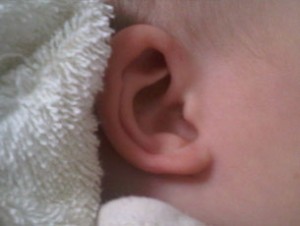From the Prophet Isaiah:
Wash yourselves; make yourselves clean;
remove the evil of your doings
from before my eyes;
cease to do evil,
learn to do good;
seek justice,
rescue the oppressed,
defend the orphan,
plead for the widow.
(From the Daily Office Lectionary – Isaiah 1:16-17 (NRSV) – December 3, 2012.)
 Advent is a time of preparation. We are getting ready for the annual feast of remembrance of the birth of Christ; we are getting ready for that unknown time that will come like a thief in the night when the Lord returns in glory to judge the living and the dead.
Advent is a time of preparation. We are getting ready for the annual feast of remembrance of the birth of Christ; we are getting ready for that unknown time that will come like a thief in the night when the Lord returns in glory to judge the living and the dead.
When I was a kid one of the rituals associated with going to visit someone, or when someone was going to come visit us, was the cleaning up. Taking a bath or shower, scrubbing behind one’s ears, brushing one’s teeth. The latter I could understand; bad breath was to be avoided. But the cleaning behind the ears . . . was somebody going to look at the backs of my ears? Were the people we were going to visit, or the person coming to visit us, really going to inspecting my ears?
Those childhood pre-visit baths come to mind when I read Isaiah’s admonition to “wash yourselves” and “make yourselves clean.” Of course, ears are not the issue here; personal spirits, individual consciences, and social injustices are. What can I do this Advent to seek justice? How can I rescue the oppressed? What measures can I take to defend and plead for the orphan and the widow? Each of us must answer these questions for ourselves, and then act on them. In the midst of shopping, baking, partying, gift-wrapping, decorating, and all the rest, we need to find time to do more than throw a few coins in a red bucket. That may be a start, but earlier in this reading today, the Lord says clearly that “bringing offerings is futile.” (v. 13)
When the king returns, he will be looking at our lives, not our offerings (as important as those may be to us). It is not enough to pay someone else, even a church or a well-deserving charity, to take care of the poor. When the king like a shepherd separates the sheep from the goats, to those on his right hand he will say, “You gave me something to eat or drink or to wear. You visited me.” He will not say, “You paid for someone else to do these things.” That won’t have been enough; it has to be personal. Each of us must undertake personal actions of justice and kindness; this is how we make ourselves clean.
====================
A request to my readers: I’m trying to build the readership of this blog and I’d very much appreciate your help in doing so. If you find something here that is of value, please share it with others. If you are on Facebook, “like” the posts on your page so others can see them. If you are following me on Twitter, please “retweet” the notices of these meditations. If you have a blog of your own, please include mine in your links (a favor I will gladly reciprocate). Many thanks!
====================
Father Funston is the rector of St. Paul’s Episcopal Church, Medina, Ohio.



Leave a Reply